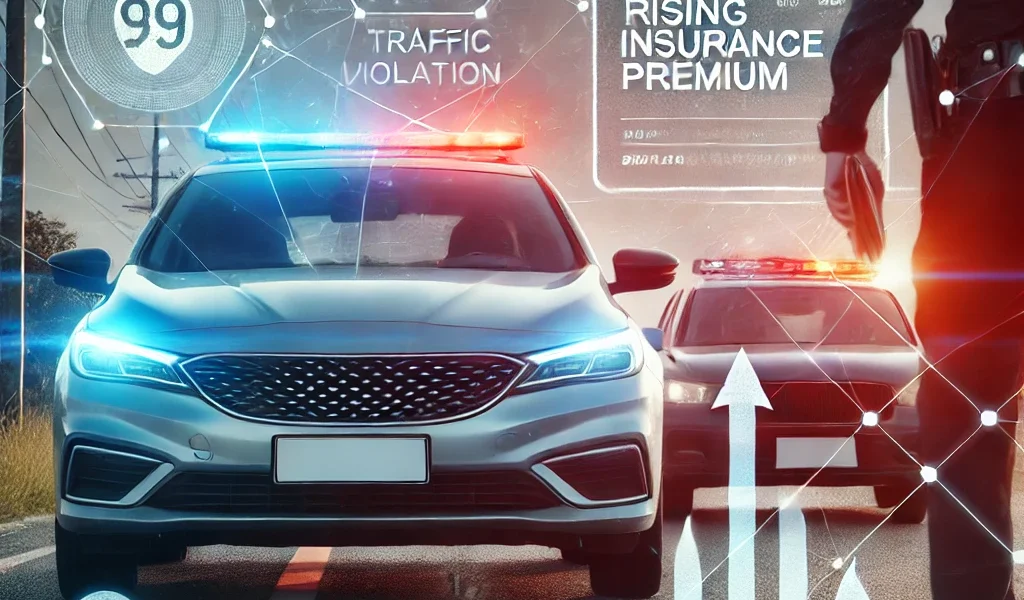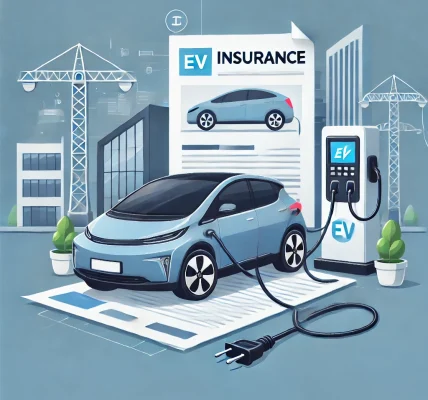Traffic violations can have a significant impact on your car insurance premiums. Whether it’s a minor speeding ticket or a major offense like reckless driving, insurance companies consider these infractions when determining the cost of your coverage.
Understanding how different violations affect your rates can help you take preventive measures to keep your insurance costs low. In this guide, we’ll discuss the impact of traffic violations on car insurance, how insurers calculate risk, and tips to mitigate the consequences of a poor driving record.
How Insurance Companies Assess RiskCar insurance providers calculate premiums based on risk assessment. When you receive a traffic violation, insurers view you as a higher-risk driver, which often leads to increased insurance costs.
Here are the key factors insurers consider when evaluating risk:
✅ Type of Violation – Serious offenses lead to higher penalties.
✅ Frequency of Violations – Multiple violations signal risky behavior.
✅ Time Since Last Violation – Older violations have less impact.
✅ Severity of the Offense – DUI and reckless driving are penalized the most.
✅ State Laws and Regulations – Rules vary by location.
Types of Traffic Violations and Their Impact on InsuranceDifferent traffic violations impact your insurance rates in different ways. Below is a breakdown of how various infractions affect your premiums:
- Speeding Tickets🚨 Impact on Premiums: Moderate to High
Speeding is one of the most common traffic violations. A minor speeding ticket may result in a small increase in premiums, but excessive speeding (e.g., 20+ mph over the limit) can lead to significant hikes. Repeat offenses can classify you as a high-risk driver, leading to even steeper penalties. - Running a Red Light or Stop Sign🚨 Impact on Premiums: Moderate
Disobeying traffic signals is considered reckless behavior. A single ticket may result in a moderate premium increase, but repeated offenses can be costly. Running a red light also increases the risk of accidents, making insurers cautious about covering such drivers. - Reckless or Aggressive Driving🚨 Impact on Premiums: High
Reckless driving, including aggressive lane changes, tailgating, and excessive speeding, can cause your premiums to skyrocket. This violation signals dangerous driving habits, making you a high-risk policyholder in the eyes of insurance companies. - Driving Under the Influence (DUI/DWI)🚨 Impact on Premiums: Very High
DUI/DWI is one of the most severe violations. A conviction can lead to a 50% to 100% increase in premiums or even policy cancellation. Many insurers require SR-22 insurance, which is a certificate proving you carry the required coverage after a serious violation. - Distracted Driving (Texting or Using a Phone)🚨 Impact on Premiums: Moderate to High
Many states impose strict penalties on distracted driving. If you’re caught texting or using a phone while driving, expect a moderate increase in premiums. Some insurers treat this violation similarly to speeding tickets, while others classify it as a serious offense. - Driving Without Insurance🚨 Impact on Premiums: High
Failing to carry the required insurance can lead to hefty fines and long-term premium increases. Insurance companies may view you as an unreliable policyholder, resulting in higher future rates or difficulty obtaining coverage. - At-Fault Accidents🚨 Impact on Premiums: High
Being at fault in an accident often leads to a significant rate increase, especially if the accident results in bodily injury or major property damage. Some insurers offer accident forgiveness, but repeated claims can still lead to steep premium hikes.
How Long Do Violations Affect Your Insurance?Traffic violations do not affect your insurance rates permanently. Most insurers look at your driving history over the past 3 to 5 years. However, the duration varies based on the severity of the violation:
📅 Minor Violations (e.g., speeding under 10 mph over limit) – 3 years
📅 Moderate Violations (e.g., running a red light, distracted driving) – 3 to 5 years
📅 Major Violations (e.g., DUI, reckless driving) – 5 to 10 years
Each insurance company has different policies, so it’s essential to check how long a violation will impact your specific insurer’s pricing.
Tips to Minimize the Impact of Traffic Violations on Your PremiumsEven if you have traffic violations on your record, there are ways to reduce the financial impact on your insurance premiums:
✅ 1. Take a Defensive Driving CourseSome states allow drivers to take a defensive driving or traffic school course to remove points from their record. Many insurers offer discounts for completing such courses.
✅ 2. Shop Around for Better RatesNot all insurers treat violations the same way. If your current provider increases your rates significantly, get quotes from other companies to find a better deal.
✅ 3. Maintain a Clean Driving RecordIf you avoid new violations for a few years, past infractions will have less impact on your premiums. Safe driving habits will help lower costs over time.
✅ 4. Ask About Accident Forgiveness ProgramsSome insurance companies offer accident forgiveness for first-time at-fault accidents, preventing your rates from increasing.
✅ 5. Increase Your DeductibleA higher deductible means lower monthly premiums. If you can afford to pay more out-of-pocket in case of an accident, this strategy may help offset the effects of past violations.
✅ 6. Consider Usage-Based Insurance (UBI)Many insurers offer telematics-based insurance programs that monitor your driving habits. Safe driving behavior tracked through these programs can lead to lower premiums, even after a past violation.
✅ 7. Wait It OutIf your violation is close to expiring from your record, your rates may drop soon. In some cases, simply waiting for an offense to age out of the insurer’s assessment period can restore lower premiums.
ConclusionTraffic violations have a direct impact on car insurance premiums, but the extent of the increase depends on the type, frequency, and severity of the offense. Minor infractions may lead to small rate hikes, while major violations like DUI or reckless driving can cause premiums to double or even result in policy cancellation.
If you’ve received a traffic violation, taking proactive steps—such as completing defensive driving courses, comparing insurance providers, and maintaining a clean driving record—can help you mitigate the financial consequences.
The best way to keep insurance costs low is to drive responsibly, obey traffic laws, and avoid repeat offenses. Safe driving not only protects you and others on the road but also helps you save money on car insurance in the long run. 🚗💡



